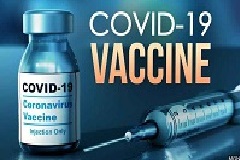 |
|||||
| The silent threat of a sedentary lifestyle: Why sitting too much could be killing you… | |||||
| 01/13/2025 ~ Zoey Sky ★ A CDC study reveals that physical inactivity is linked to 19 health conditions, including diabetes, obesity and depression. ★ Prolonged sitting weakens muscles, slows metabolism and increases the risk of chronic diseases. Regular physical activity improves circulation, strengthens the heart, regulates blood sugar and releases endorphins that boost mental health.★ Small changes, like taking “exercise snacks” (e.g., walking in place or stretching every hour) or using stairs can counteract the effects of sitting. ★ Adults should aim for 150 minutes of moderate-intensity aerobic activity or 75 minutes of vigorous activity weekly, plus strength training twice a week. ★ Starting small and staying consistent, even with 10 minutes of daily movement, can significantly improve physical and mental well-being. In an age where desk jobs, streaming services and endless scrolling dominate the daily lives of most people, the dangers of a sedentary lifestyle are more pressing than ever. A groundbreaking study published in the Preventing Chronic Disease journal by the Centers for Disease Control and Prevention (CDC) has sounded the alarm: A lack of physical activity is directly linked to a higher risk of developing a staggering 19 health conditions, including diabetes, heart disease, obesity and depression. The findings are a wake-up call for anyone who spends many hours sitting at a desk, lounging on the couch, or skipping the gym. The message is clear: Moving more isn’t just a recommendation – it’s a necessity for survival. Health risks of sitting too much The study analyzed data from over 7,000 adults and found that physically active individuals had significantly better health markers, including lower blood pressure, healthier cholesterol levels and a reduced risk of chronic diseases. On the flip side, those who were inactive or insufficiently active faced a higher likelihood of developing multiple health conditions. The numbers are stark: Inactive individuals had an average of 2.2 medical conditions, compared to just 1.2 for those who met the recommended exercise guidelines. The conditions linked to inactivity include: ★ Anemia deficiency ★ Autoimmune disorders ★ Chronic pulmonary disease ★ Complicated diabetes ★ Complicated hypertension ★ Congestive heart failure ★ Depression ★ Drug abuse ★ Hypothyroidism ★ Mild liver disease ★ Neurologic disorders affecting movement ★ Neurologic seizures ★ Peripheral vascular disease ★ Obesity ★ Psychoses ★ Uncomplicated diabetes ★ Uncomplicated hypertension ★ Valvular disease ★ Weight loss Why movement matters Dr. Suzanne Steinbaum, a cardiologist and expert in preventive health who is not affiliated with the study, warned that the human body was not “designed to sit for long periods.” She added that whenever you’re sedentary, your muscles weaken and your metabolism slows. Being inactive also increases the risk of different chronic diseases. The human body thrives on movement. Regular physical activity is important because it improves circulation, strengthens the heart and helps regulate blood sugar levels. It also releases endorphins, the “feel-good” hormones that boost mental health and reduce stress. But when you sit for hours on end, your body essentially goes into “shutdown mode.” When this happens, blood flow slows, muscles atrophy and fat accumulates, leading to weight gain and metabolic dysfunction. Over time, this can result in serious health issues like Type 2 diabetes, hypertension and even heart attacks. Desk job dilemma For many adults, sitting is an unavoidable part of daily life. Desk jobs, long commutes and screen time can make it challenging to stay active. But experts emphasize that even small changes can make a big difference. Jessica Matthews, a kinesiology professor, advised that you don’t need to become an athlete overnight or run marathons to reap the benefits of regular exercise. She added that even breaking up long periods of sitting with “short bursts of movement” can help improve your overall well-being. Here are some practical tips for staying active, even if you’re glued to your desk: Take “exercise snacks” Set a timer to remind yourself to get up from your work desk and move every hour. Do stretches or walk from your desk to the other side of the room. You can also tackle quick tasks, like doing the dishes or taking out the trash. Even three to six minutes of light activity – like walking in place, doing squats or stretching – can get your blood flowing and counteract the effects of sitting. Walk while talking If you’re on a long phone call, take the opportunity to walk around your office or home. Walking meetings are another great way to stay active while staying productive at work. Use the stairs whenever you can Skip the elevator and take the stairs on your way to work or while at the mall. Climbing stairs is an excellent way to boost your heart rate and strengthen your legs. Park farther away If you need to take your car while running errands or commuting to the office, park your car farther from the entrance. Those extra steps add up over time. Incorporate movement into your daily routine If you love watching TV, stretch during the commercial breaks. Do calf raises while brushing your teeth or take a short walk after meals. Every bit of movement counts. Power of 10,000 steps A 2024 study found that walking 10,000 steps a day can significantly reduce the health risks associated with a sedentary lifestyle. Walking this amount lowered the risk of cardiovascular disease by 21 percent and the risk of death by 39 percent. (Related: Study: Betalains in beets can help reduce fatigue and boost athletic performance.) However, researchers caution that walking alone isn’t enough to offset the dangers of prolonged sitting. Matthew Ahmadi, the study’s lead author, warned that while increasing your step count offers benefits, “it’s not a free pass to sit all day.” Ahmadi added that it’s crucial to “move more throughout the day” and not just during one workout. How much exercise do you really need? According to the Office of Disease Prevention and Health Promotion, adults should aim for at least 150 minutes of moderate-intensity aerobic activity (like brisk walking) or 75 minutes of vigorous-intensity activity each week. Additionally, strength training exercises that target all major muscle groups should be done at least twice a week. For those with busy schedules, the good news is that exercise doesn’t have to be done all at once. Breaking it into smaller chunks – like three 10-minute walks a day – can be just as effective as a full workout at the gym. |
|||||
| Watch this video: [Duration 15:06] Mike Adams is helping to create a better world. Uncensored, Unfiltered, & Unedited. This video is from the shanidogar channel on Brighteon.com. |
|||||
Visit: 🖥️ Brighteon.com, For more updates.  Natural News videos would not be possible without you, as always we remain passionately dedicated to our mission of educating people all over the world on the subject of natural healing remedies and personal liberty (food freedom, medical freedom, the freedom of speech, etc.). Together, we are helping create a better world, with more honest food labeling, reduced chemical contamination, the avoidance of toxic heavy metals and vastly increased scientific transparency. Read more at Natural News.Every dollar you spend at the Health Ranger Store goes toward helping us achieve important science and content goals for humanity: https://www.healthrangerstore.com/ Natural News videos would not be possible without you, as always we remain passionately dedicated to our mission of educating people all over the world on the subject of natural healing remedies and personal liberty (food freedom, medical freedom, the freedom of speech, etc.). Together, we are helping create a better world, with more honest food labeling, reduced chemical contamination, the avoidance of toxic heavy metals and vastly increased scientific transparency. Read more at Natural News.Every dollar you spend at the Health Ranger Store goes toward helping us achieve important science and content goals for humanity: https://www.healthrangerstore.com/Sign Up For Our Newsletter: https://www.naturalnews.com/Readerregistration.html Brighteon: https://www.brighteon.com/channels/hrreportCheck In Stock Products at: https://PrepWithMike.com Parler: https://parler.com/#/user/naturalnews Gettr: https://gettr.com/user/naturalnews Gab: https://gab.ai/NaturalNews Rumble https://rumble.com/c/HealthRangerReport |
|||||
| 😎 Bypass censorship by sharing one of these links: https://1realnews.com/news5-01-13/ or http://at.box1.ws/news5-01-13/ or https://box91.com/news5-01-13/ or https://box127.com/news5-01-13/ or https://box145.com/news5-01-13/ or https://box154.com/news5-01-13/ |
|||||
Daily Updates
Copyright © 2025 Real News - Site #2
































